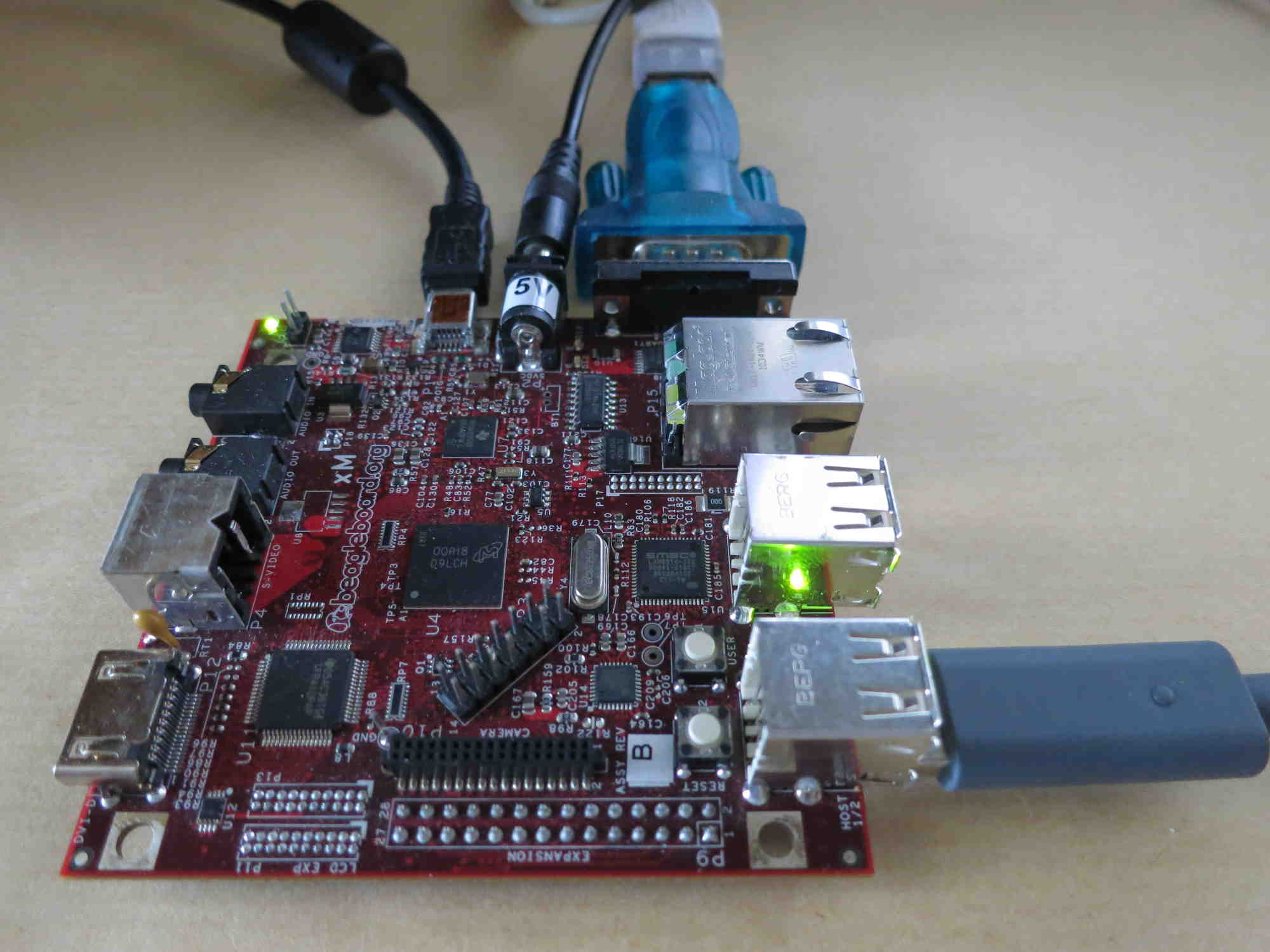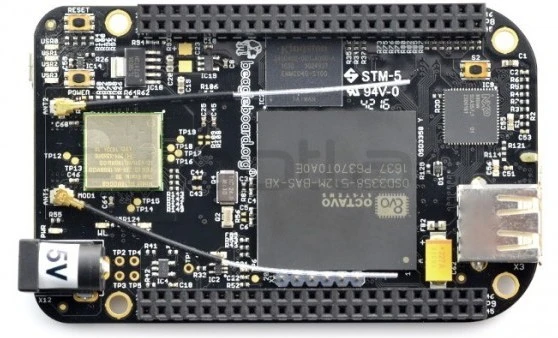The rapid evolution of technologies continues its race and embedded systems begin to occupy more space. After the Raspberry Pi, the world of single-board computers expanded with the arrival of BeagleBone. It is frequently used in networking and in high-temperature industrial environments. One might then ask what is it for and how to use it? In this article, we propose to answer this question by presenting it, then to study its usefulness and finally to see how to use it.
Origin of BeagleBone

BeagleBone boards are fanless single board computers based on Texas Instruments processors. They have low power consumption and feature the ARM Cortex-A core. The board has all the scalability of today’s desktop machines, but without the clutter, expense or noise. BeagleBoard.org provides an open source development platform for creating high-performance embedded designs with the root name BeagleBone.
The BeagleBoard, the ancestor of BeagleBone, is a low-power, single-board computer-like electronic board. It is a free hardware produced by Texas Instruments in collaboration with Digi-Key. The BeagleBoard was also designed with open source software development in mind. It is also a way to demonstrate the features of the Texas Instrument OMAP3530 system-on-a-chip2. The board was developed by a small team of engineers for educational purposes to be used in universities around the world to teach the potential of open source hardware and software.
Features of the BeagleBone
BeagleBone is open source hardware that has a foam factor the size of a credit card. It was the first of its kind, which became famous for its small size, but having a large capacity. Unlike its ancestors such as BeagleBoard or BeagleBoard-xM, it has many input-output pins that can be used by hackers and hardware enthusiasts to interface Linux with their favorite sensors without any changes at the kernel level. In addition, its Arduino design can be used to attach many capes, which will add even more wings to its capabilities.
The most common characteristics are:
- 256MB DDR2 RAM
- 3D graphics accelerator
- ARM Cortex-M3 for power management
- 2x 32-bit RISC PRU processors
- USB client: power, debugging and peripheral
- USB host
- Ethernet
- 2 x 46-pin headers
| Norton Secure VPN 2023 for up to 5 Devices | |
 | 19,99 $ |
Beaglebone Card Templates
Thus, we can now run our favorite Linux distributions, Android, Ubuntu and extend the functionality with BeagleBoard.org capes and flexible peripheral interfaces on several Beagle Bone compatible boards. These include:
- BeagleBone AI-64: Provides developers with a complete AI and machine learning system with the convenience and scalability of the BeagleBone platform. Embedded devices put a huge amount of computing power into an easy-to-use platform. Everything from autonomous robots to building automation systems can be built

- BeagleBone Blue: is a robotic controller built around the BeagleBone open hardware computer. It is Linux compatible and is supported by the community and fully open source. It offers flexible networking capabilities and peripheral interfaces to build mobile robots quickly and cost-effectively.

- PocketBeagle: is an ultra-tiny but complete open-source USB keychain computer. It features incredible cost, sleek design, and simple to use, making it the ideal development board.

- BeagleBone Black Wireless : The BeagleBone Black Wireless BeagleBone Noir Wireless replaces the 10/100 Ethernet port with 802.11 b/g/n 2.4 GHz Wi-Fi and integrates Bluetooth . It was born from a partnership with Octavo Systems. It’s the easiest credit card-sized Linux IoT computer available.

- BeagleBone Industrial: The BeagleBone Black Industrial is a low-cost, high-expansion board using a Sitara™ AM3358 ARM® Cortex-A8™ processor. It comes with the Debian Linux distribution pre-installed on the integrated FLASH board, ready to start evaluation and development.

- BeagleBone Black (BBB)
USE OF BEAGLEBOARDS
BeagleBoard cards have attracted a lot of attention lately thanks to their price but not only. A set of features make it like a versatile mix of Raspberry Pi and Arduino. They offer an excellent introduction to hardware development and a potential path from amateur projects to commercially viable hardware products. For those wondering about the possibilities, here is a selection of possible achievements with BeagleBone cards:
- Network monitoring: The BeagleBone can be used to monitor internet connections on your network. This is simply done by identifying high-bandwidth users and potential security risks.
- Home automation: The board has been designed with pins suitable for home automation equipment and supports some of Arduino’s features. BeagleBone can be used for the design and implementation of connected smart equipment (IOT).
- Temperature sensor: The system uses a steel coil, a water heat exchanger and a temperature sensor. The sensor monitors the temperature of a fermentation and manages it using a web interface.
- Media center: the card is able to fully play the role of a computer and even more of a home theater broadcast equipment. It even has a system adapted for the occasion.
- Hacking: In the world of hacking and security, it is the perfect and easily concealable tool within a network. It can be used for remote access or as a backdoor.
- Task automation
- Facebook Like Counter: The Facebook-like counter uses Facebook’s OpenGraph API to receive the number of “likes” from a particular node on the graph in JSON format. The project then displays the number on a 7-segment, 4-digit LED display.
Also find out about :
- The best video editing software between iMovie and Final Cut Pro
- How to protect yourself on the internet without installing software
- The best software to hack Wi-Fi in 2022
